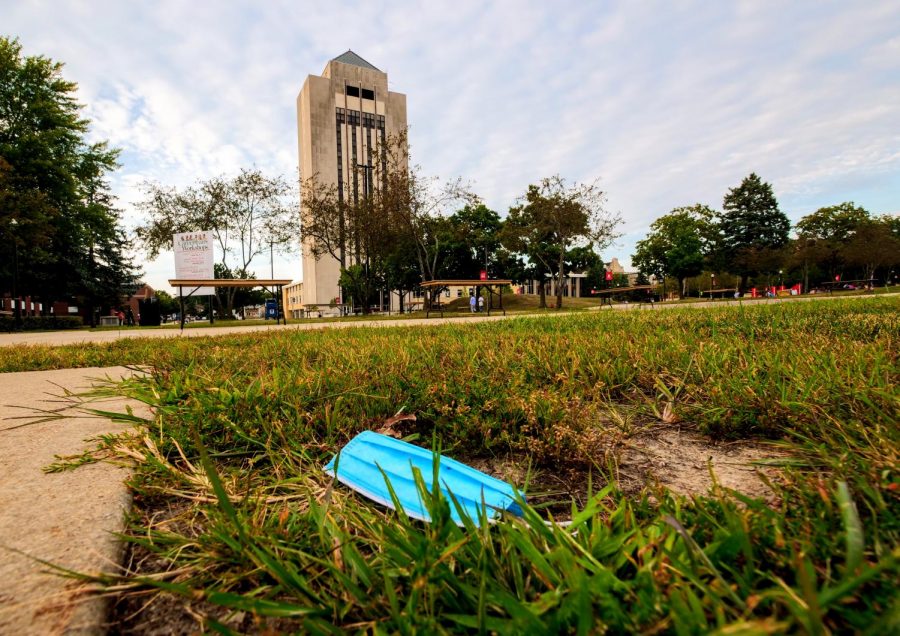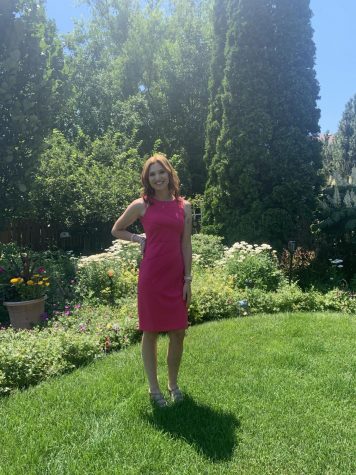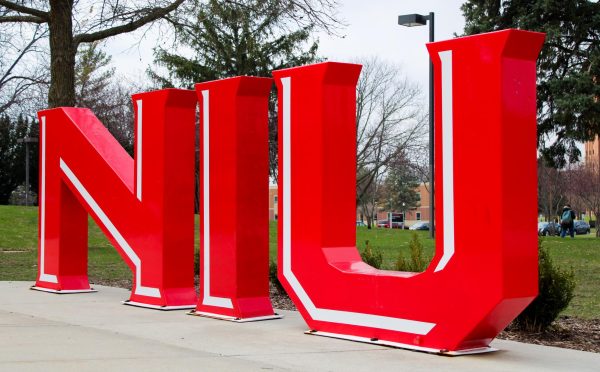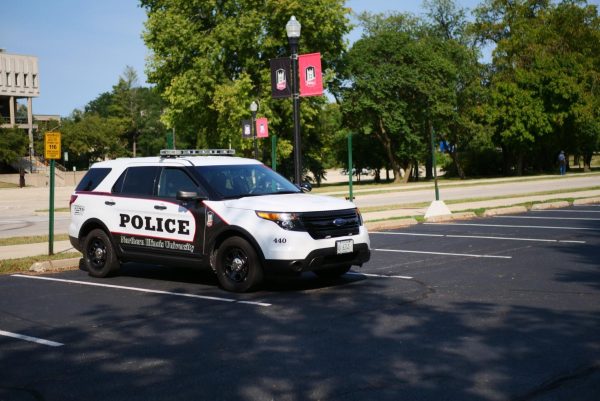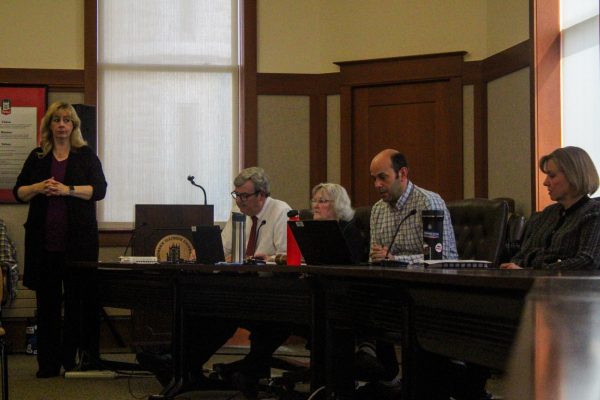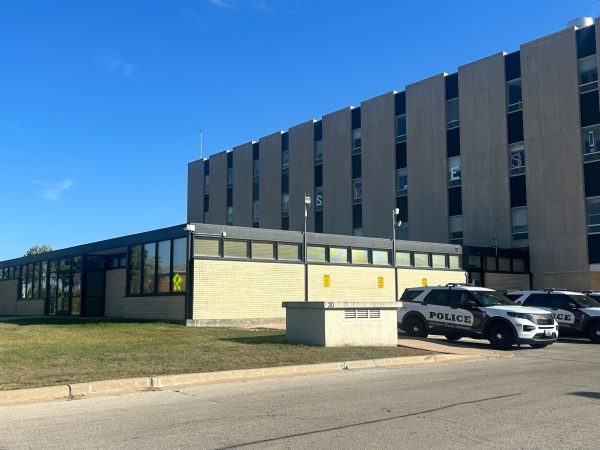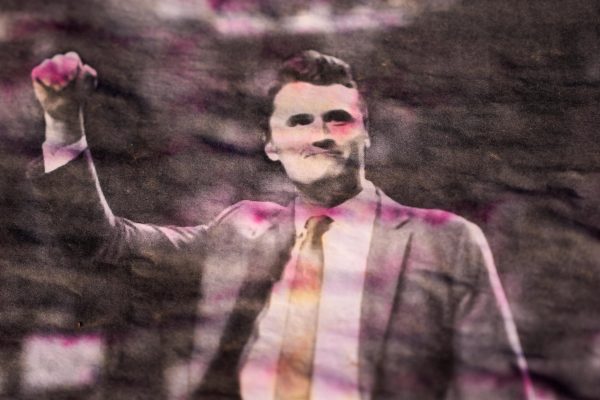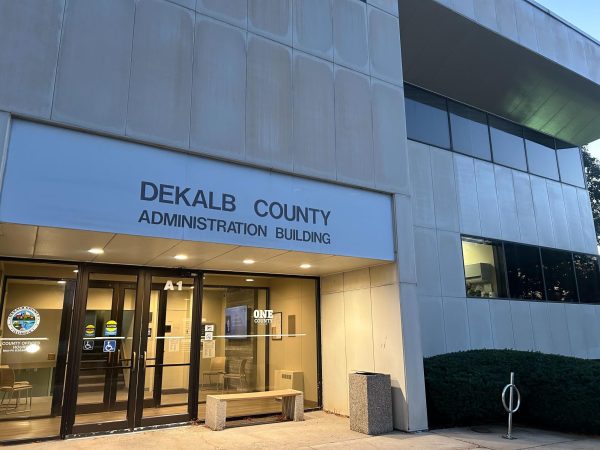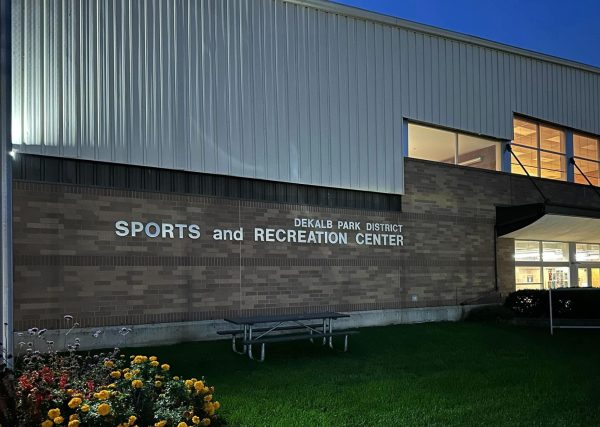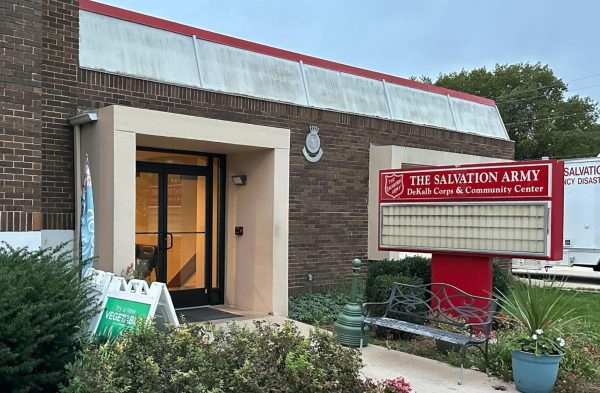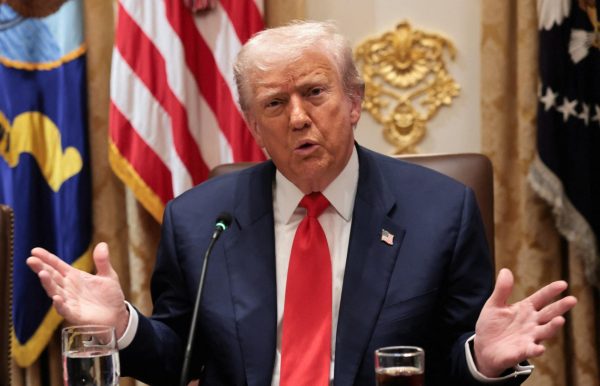Students, faculty react to new mask policy
Faculty and students have the choice of if they want to wear a mask or not.
DeKALB – Students and faculty have mixed reactions when it comes to whether people should still wear a mask or not in classrooms and other indoor spaces throughout campus.
NIU students, faculty and staff are on their second week attending in-person classes without the requirement of wearing a mask since the university followed the state of Illinois dropping its mask mandate while in an inside space. The new mask policy began on Feb. 28.
Professors’ reactions
Communication professor Laura Vazquez still requires masks in her hybrid and 100% in-person classes because students signed up for her classes knowing there was the original mask mandate and students came forward asking if she kept the mandate in place.
“The way I look at it as a faculty member, as I say, if you signed up for this class, knowing there were masked mandates, and someone asks me to keep the mandates in place because if they’re immunocompromised, or they have a family member who is, I think it’s my obligation to keep the masks in place in the classroom,” Vazquez said.
Vazquez said she feels more comfortable being masked since she knows people who are still getting sick despite being vaccinated and boosted.
“I love being in person,” Vazquez said. “I find it personally very gratifying and I think it’s better for the learning experience because we all are becoming a community again. We’re all learning how to get together again. We’re all remembering how to be engaged with one another again, I think that’s really critical.”
Business professor Neil Doughty leaves wearing of masks up to student’s choice but does wear one while teaching his three in-person classes to protect his granddaughter who was born prematurely.
“I think masks are, from everything that I have read, are very effective and beneficial,” Doughty said. “By the same token, I believe that the CDC has changed their guidance and are now saying that they are not necessary for most healthy adults and so I’m following that guidance.”
Doughty does believe that masks are useful for protecting others along with themselves.
Law professor Robert Jones gives his students free choice and does not wear one while teaching, so students can understand him better since he also records all of his three classes.
“If the positive rates start going up, I can just reinstitute the mask policy and requirement,” Jones said.
Jones wants to remind everyone that not everyone is as lucky as those that may think the pandemic is over. There are immunocompromised people or some who have suffered through trauma that can’t forget. If someone is wearing a mask, he said it is probably for a reason.
“My students have just all been so respectful of each other and me, I guess, I’ve just never had any problems,” Jones said. “You know, and I just really appreciate how mature they’ve been about it all.”
Spring break concerns
Vazquez and Jones both share concerns about what will happen when students return from spring break since students could be traveling or partying.
“I would have preferred waiting, you know, and I’m biased because we have spring break coming up,” Vazquez said. “And here’s what I know about my students and spring break, they like to party. I’m not gonna argue, they should. That’s the life of a student. They should do that. And when they come back, will they come back sick? I don’t know.”
Jones will be requiring his students to wear a mask the week after coming back from spring break.
“Students are going all certain places, having fun, going on planes,” Jones said. “So that week after spring break, I think people are kind of vulnerable. Immunocompromised people are particularly vulnerable, so I’m going to ask them to continue to wear the masks for that week.”
Jones is worried about what the positivity rates on campus may look like once students return from break. The current campus positivity rate is .52%, according to the COVID dashboard.
Student reactions
Arielle Sinio, a first-year nursing major will continue wearing a mask to protect herself but feels people should do what they want when it comes to wearing one or not.
When it comes to teachers requiring students to wear a mask in their classrooms, Sinio believes it should depend on the class size and how close people are sitting by each other.
“I think it depends on like, how big of their classroom size ‘cause like if they’re sitting right next to each other, I obviously don’t want to sit that close to you,” Sinio said. “But if it’s like a big hall, I like understand.”
Sinio recommends people still social distance and get tested as much as possible.
On the other hand, Courtney Cheloni, junior communication media studies major, does not wear a mask because she believes they limit social interaction. Cheloni said she goes to school to meet new people and communicate and masks make that difficult.
Cheloni is required to still wear a mask in her argument and debate course since the class had a group discussion and came to the conclusion that people have family members that are at risk.
“It’s all about sanitation too like, you’re still touching stuff and that’s still transmitting stuff,” Cheloni said. “It’s not just through your mouth and your breath and your spit and that. Make sure you wash your hands, wipe off tables. If you’re like a freak about it, wash tables before you sit down, wipe off everything. But yeah, pretty much sanitizing and staying healthy for your own self.”


